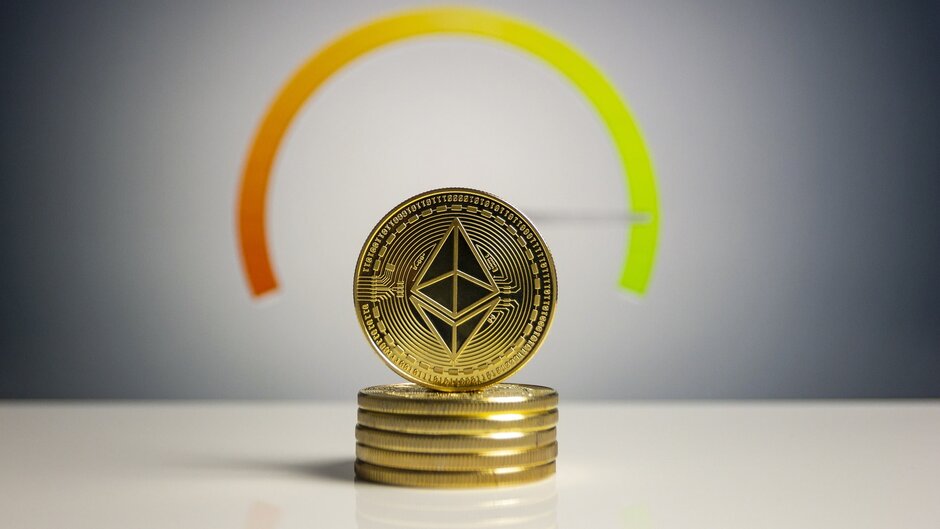Ethereum could decline to $2,207 if Middle East war tension escalates
- Ethereum could face a heavy decline if Middle East war tension persists.
- Ethereum ETFs are lagging because ETH investment narrative isn't easy for traditional investors to digest, says BlackRock.
- Ethereum broke a key support level and could decline to $2,207 if bearish pressure persists.

Ethereum (ETH) is trading below the $2,595 support level on Tuesday as investors are becoming more cautious following heightened war tensions in the Middle East.
Daily digest market movers: Ethereum declines following Middle East war tension
Ethereum and the entire crypto market is in a downtrend on Tuesday following geopolitical tension in the Middle East. Ethereum dropped below the $3,500 psychological level upon news of Iran launching a missile attack on Israel. The top altcoin may see a further decline if the tension escalates, as market participants anticipate a retaliation from Israel.
Ethereum exchange reserves also align with the decline as investors have rapidly switched from a risk-on attitude to a more cautious approach. According to CryptoQuant's data, Ethereum exchange reserves increased by over 144K ETH in the past 24 hours.
Ethereum Exchange Reserve
An increase in the spot exchange reserve of a cryptocurrency indicates higher selling pressure and a potential for more price decline.
Meanwhile, Ethereum ETFs recorded a net outflow of $0.8 million on Monday as BlackRock ETHA's $11 million inflow failed to outweigh the $11.8 million negative flows in Grayscale's ETHE, per Farside investors data. On the other hand, Bitcoin ETFs posted a net inflow of $61.3 million.
Since launch, Ethereum ETFs have largely underperformed their Bitcoin counterparts, and a key executive of asset manager BlackRock expects the trend to continue.
According to a report by Fortune, a BlackRock executive believes ETH ETFs haven't seen high volume because an Ethereum investment narrative isn't easy for many traditional investors to digest. The executive noted that issuers need to be committed to sensitizing and educating customers on ETH's potential and use cases.
Ethereum breaks key support level
Ethereum is trading around $2,480 on Tuesday, down nearly 4% on the day. In the past 24 hours, ETH has sustained over $87 million in liquidations — its highest since August — with long and short liquidations accounting for $71.01 million and $16.36 million, respectively.
Despite optimism surrounding a potential bullish October for crypto, Ethereum opened the month on a low, crossing below the support level around $2,595. The move also saw ETH crossing below its 50-day, 100-day and 200-day Simple Moving Averages (SMA), indicating potential for increased bearish pressure.
ETH/USDT 4-hour chart
The next support level to watch is $2,395. A breach of this level could send ETH toward $2,207.
The Relative Strength Index (RSI) and Stochastic Oscillator (Stoch) momentum indicators are below their neutral levels and approaching their oversold regions.
A reclaim of the $2,595 support level will invalidate the bearish thesis.
Ethereum FAQs
Ethereum is a decentralized open-source blockchain with smart contracts functionality. Its native currency Ether (ETH), is the second-largest cryptocurrency and number one altcoin by market capitalization. The Ethereum network is tailored for building crypto solutions like decentralized finance (DeFi), GameFi, non-fungible tokens (NFTs), decentralized autonomous organizations (DAOs), etc.
Ethereum is a public decentralized blockchain technology, where developers can build and deploy applications that function without the need for a central authority. To make this easier, the network leverages the Solidity programming language and Ethereum virtual machine which helps developers create and launch applications with smart contract functionality.
Smart contracts are publicly verifiable codes that automates agreements between two or more parties. Basically, these codes self-execute encoded actions when predetermined conditions are met.
Staking is a process of earning yield on your idle crypto assets by locking them in a crypto protocol for a specified duration as a means of contributing to its security. Ethereum transitioned from a Proof-of-Work (PoW) to a Proof-of-Stake (PoS) consensus mechanism on September 15, 2022, in an event christened “The Merge.” The Merge was a key part of Ethereum's roadmap to achieve high-level scalability, decentralization and security while remaining sustainable. Unlike PoW, which requires the use of expensive hardware, PoS reduces the barrier of entry for validators by leveraging the use of crypto tokens as the core foundation of its consensus process.
Gas is the unit for measuring transaction fees that users pay for conducting transactions on Ethereum. During periods of network congestion, gas can be extremely high, causing validators to prioritize transactions based on their fees.
Author

Michael Ebiekutan
FXStreet
With a deep passion for web3 technology, he's collaborated with industry-leading brands like Mara, ITAK, and FXStreet in delivering groundbreaking reports on web3's transformative potential across diverse sectors. In addi
-638634090159756173.png&w=1536&q=95)






